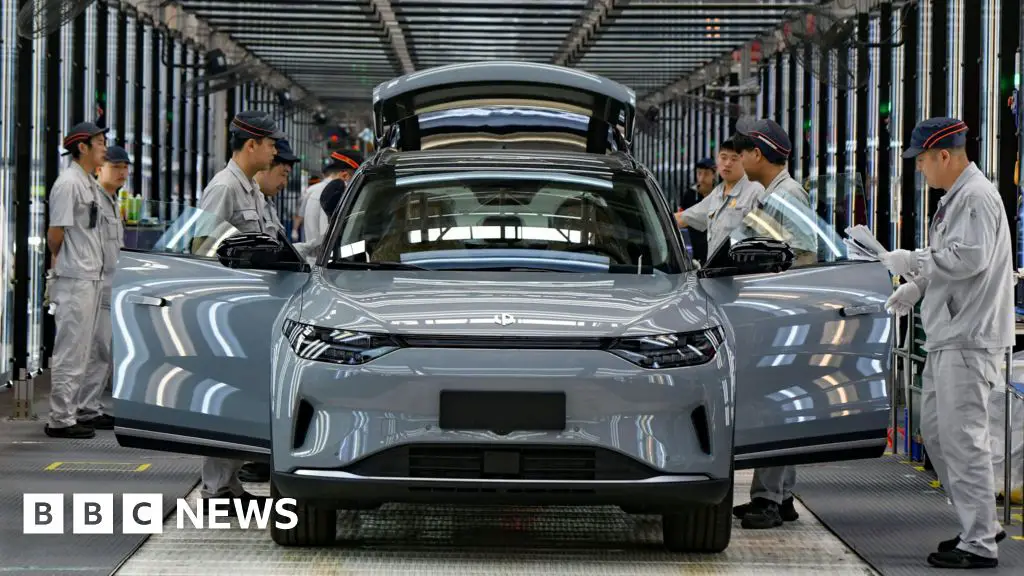
The White House did not immediately respond to a BBC request for comment.
In February, President Biden said that China’s policies “could flood our market with its vehicles, posing risks to our national security” and that he would “not let that happen on my watch.”
Washington could impose restrictions over concerns that the technology in Chinese-made cars could “collect large amounts of sensitive data on their drivers and passengers”, the White House said.
It warned cars that are connected to the internet “regularly use their cameras and sensors to record detailed information on US infrastructure; interact directly with critical infrastructure; and can be piloted or disabled remotely”.
China is the world’s largest producer of cars and vying with Japan to be the biggest exporter of vehicles.
This week, while on a trip to China, US Treasury Secretary Janet Yellen warned Beijing that Washington would not allow a repeat of the “China shock” of the early 2000s, when Chinese imports flooded into America.
In response, China’s vice finance minister, Liao Min, expressed “grave concern” over restrictions the US has imposed on trade and investment.
Mr Liao said China’s competitive advantages are due to its “large-scale market, complete industrial system and abundant human resources”.
Also on Thursday, America’s biggest airlines asked the Biden administration to halt approvals of new flights between the US and China.
In a letter to Secretary of State Antony Blinken and Transportation Department Secretary Pete Buttigieg they said China’s “damaging anti-competitive policies” put US carriers at a disadvantage.
“If the growth of the Chinese aviation market is allowed to continue unchecked and without concern for equality of access in the market, flights will continue to be relinquished to Chinese carriers at the expense of US workers and businesses.”
The world’s two biggest economies have been locked in a trade war since 2018 when the then-Trump administration imposed tariffs on more than $360bn (£287bn) of Chinese goods.
Beijing retaliated with tariffs on more than $110bn of US products.
President Joe Biden has largely kept those tariffs in place.
Last year the value of goods the US bought from China fell by just over 20% to $427bn. At the same time, US exports to China dipped by 4% to just under $148bn.







